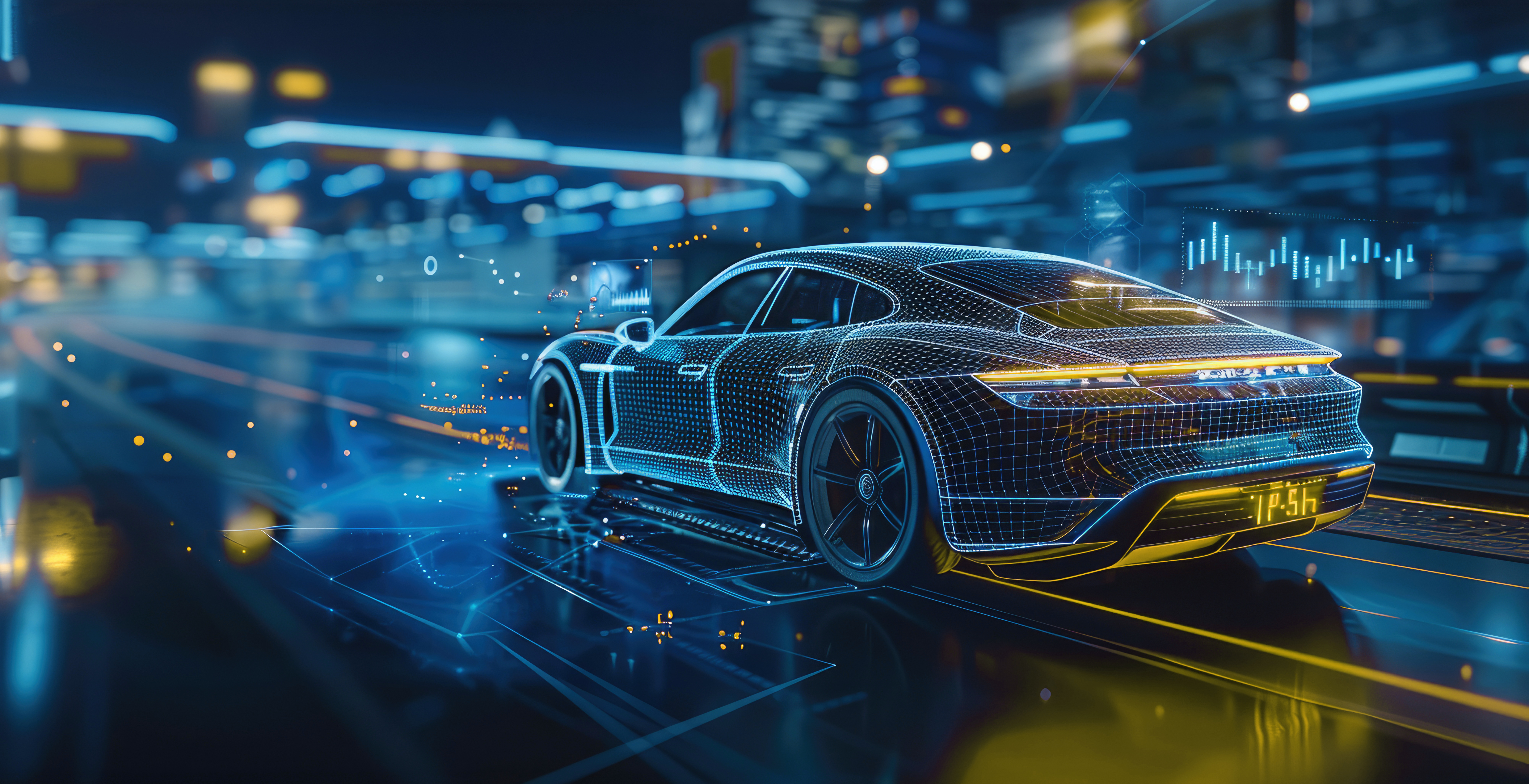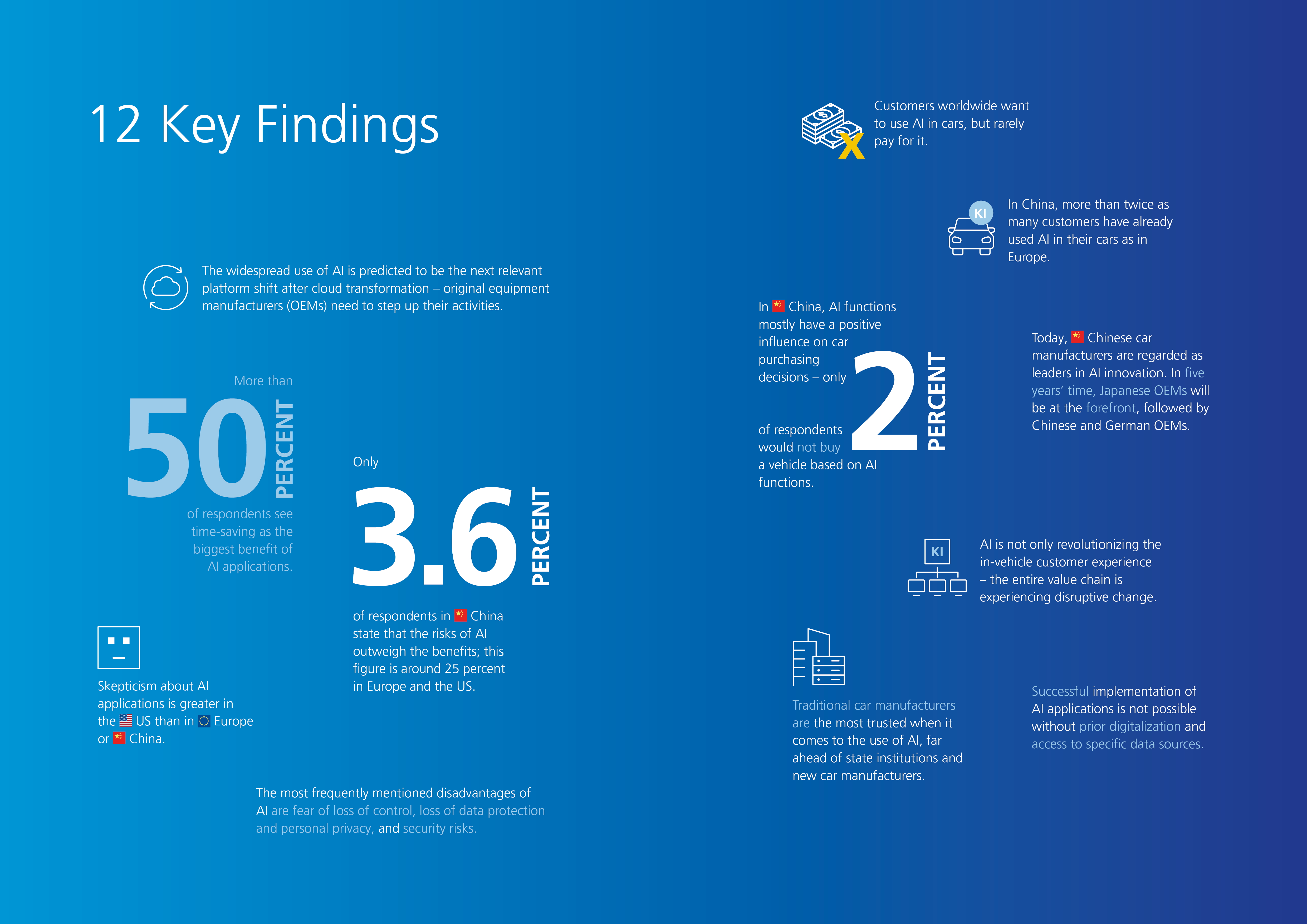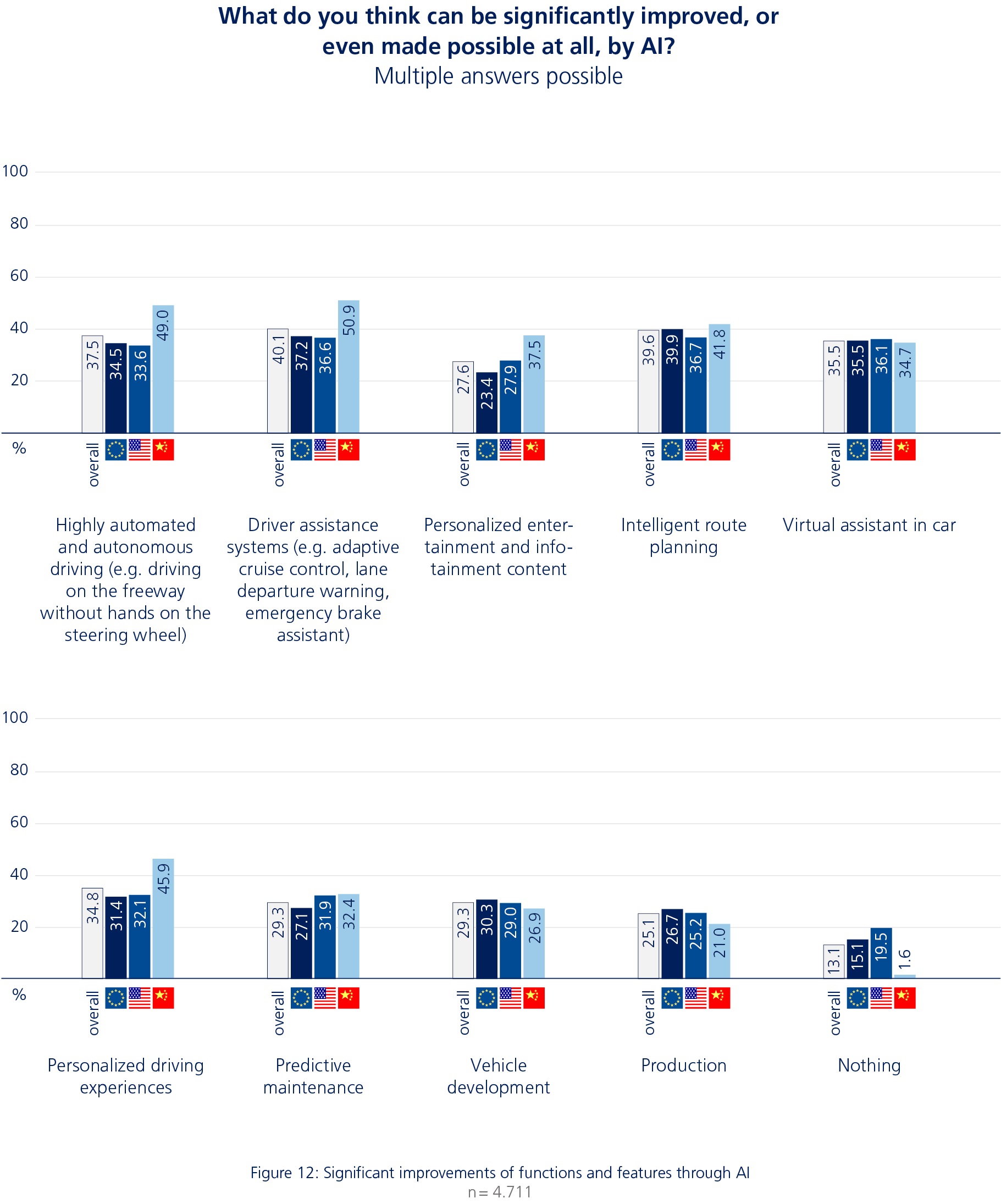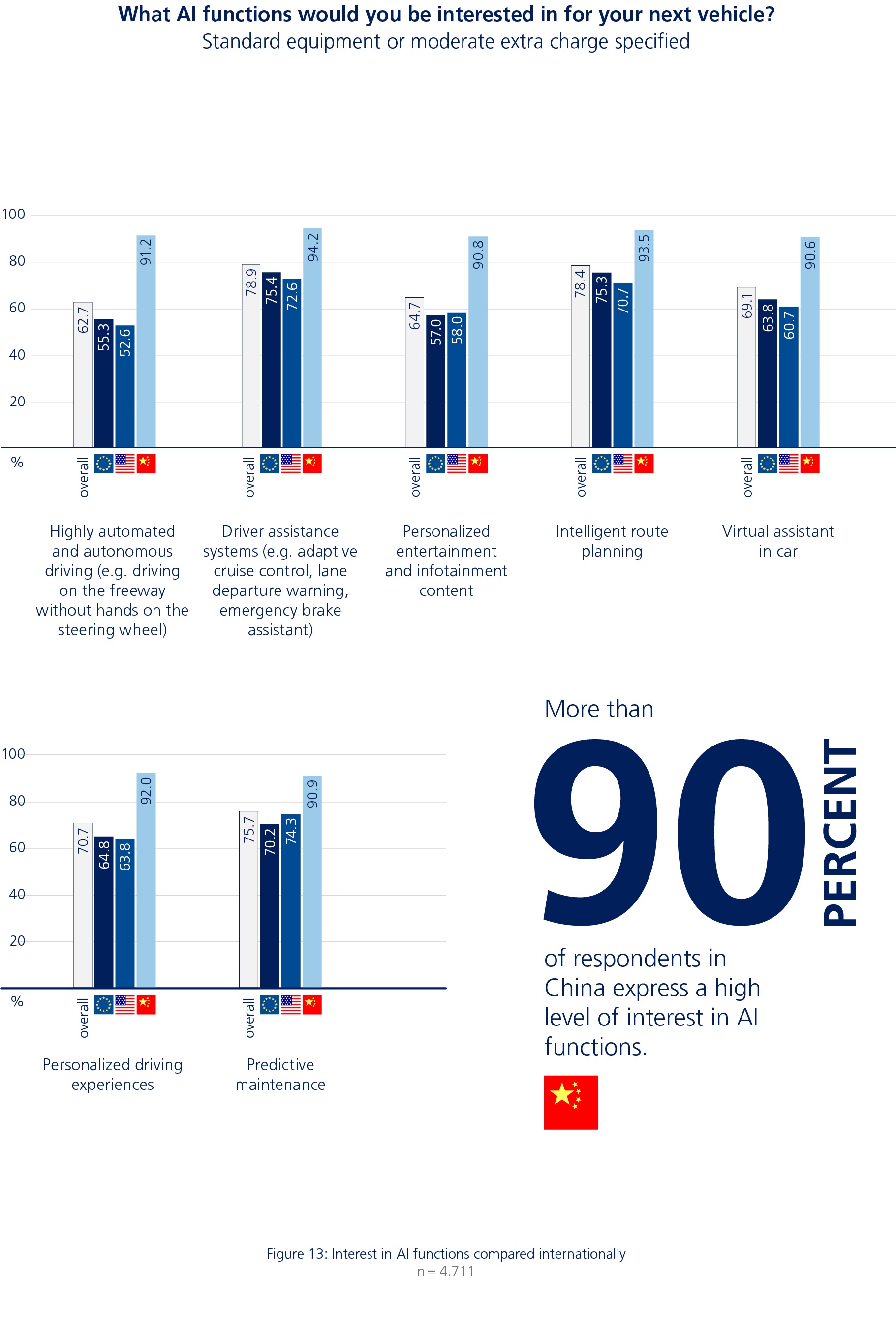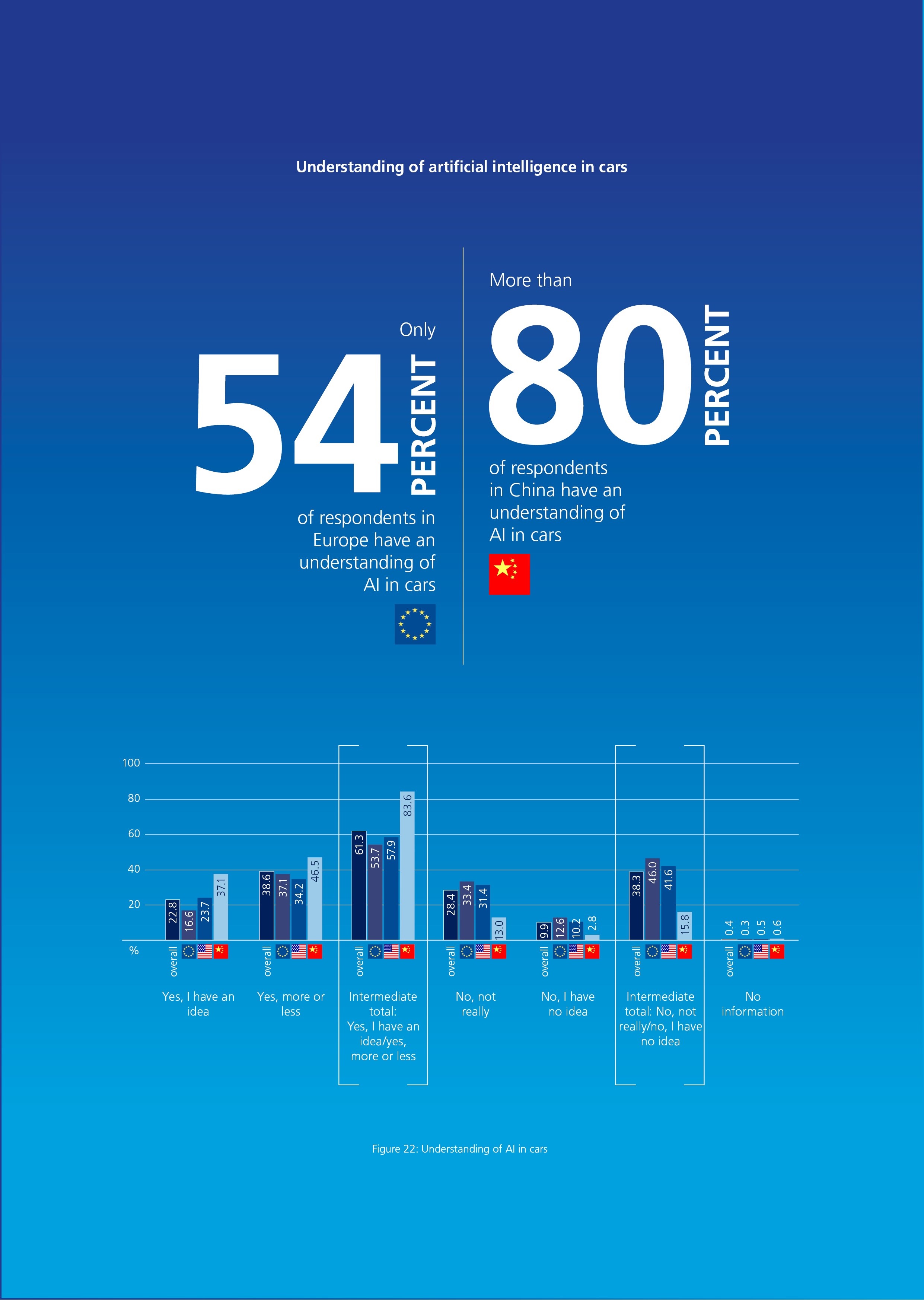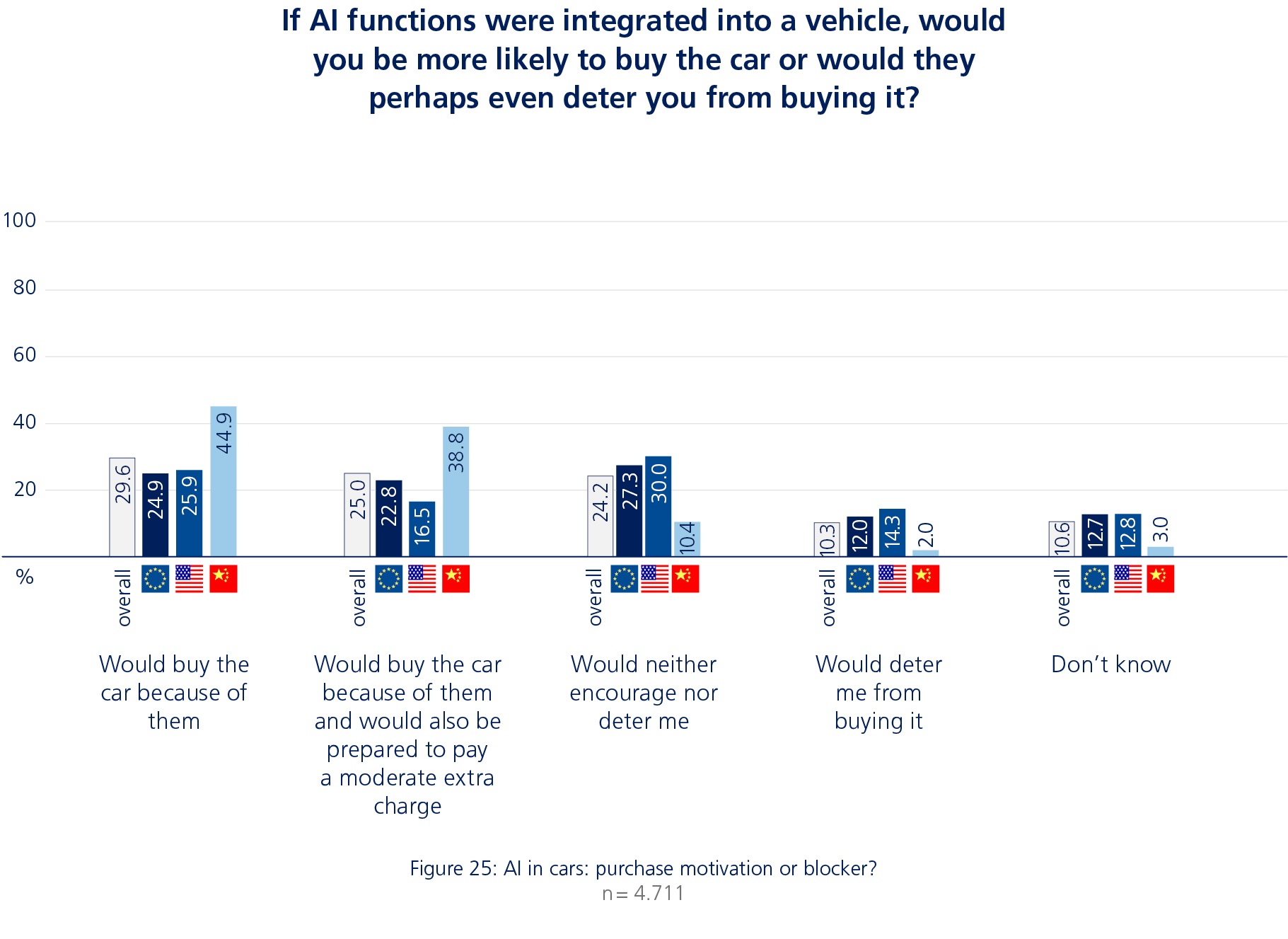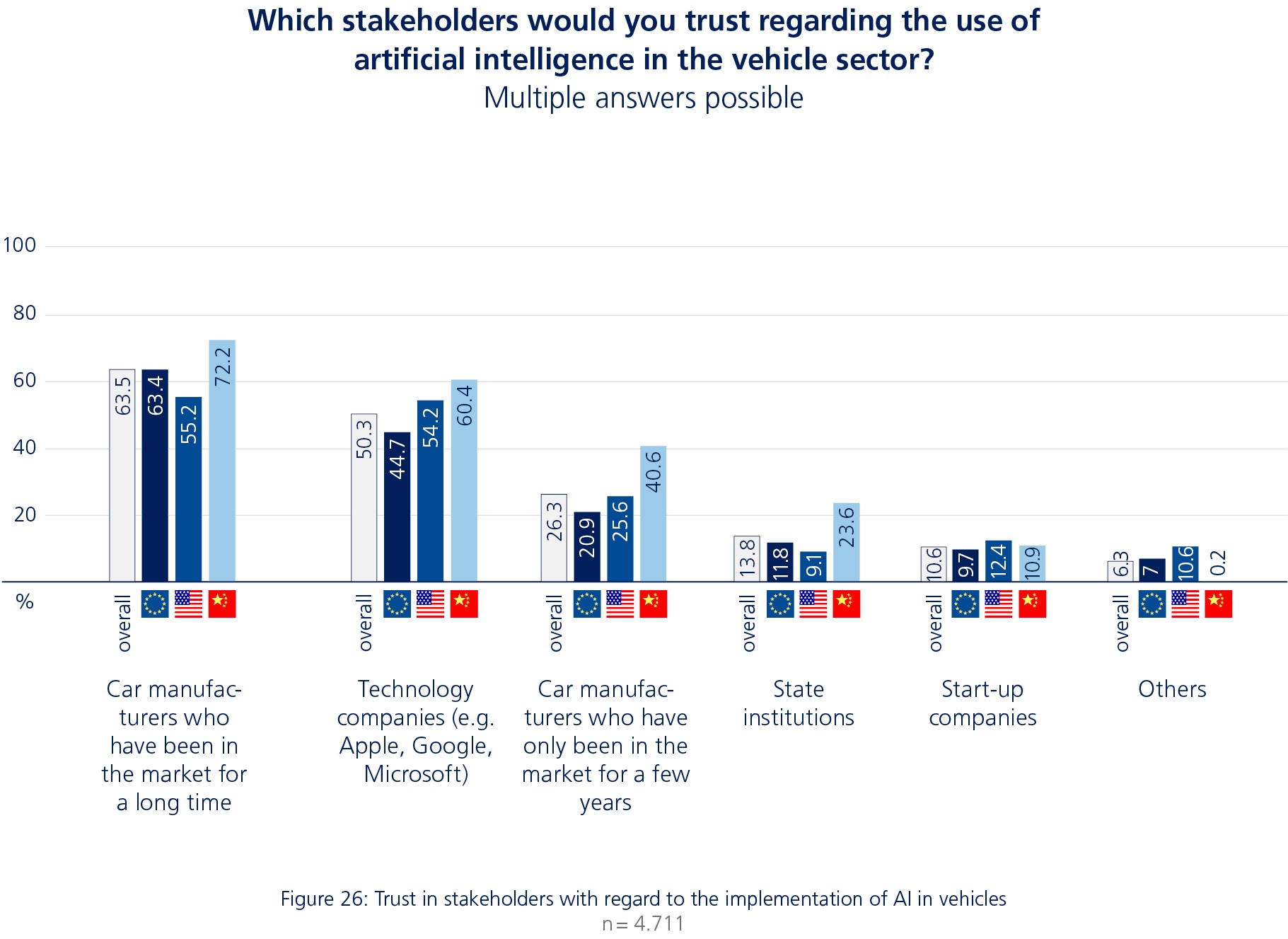- MHP’s mobility study “AI as Game Changer: The New Driving Force of the Automotive Industry” shows the use of AI in cars and in the industry
- International survey of 4,700 participants examines expectations of AI and user behavior
- 79 percent of respondents in Europe are interested in AI-supported cars, but only 23 percent would pay an extra charge for these functions
- Study provides strategies and recommended actions for competitive advantages through the use of artificial intelligence in cars – and in companies
Ludwigsburg – Where and how much is the AI revolution changing the automotive industry? An international mobility study by MHP management and IT consultancy gives an overview, supplies current facts and figures, and provides recommendations for action for decision-makers.
The study entitled “AI as Game Changer: The New Driving Force of the Automotive Industry” shows that global use of AI solutions is the next stage of development for cars and for automobile manufacturing. However, the automotive industry is more cautious than other sectors when it comes to investing in AI computing capacity, teams, and budgets. Clearly, many stakeholders remain uncertain and undecided. The study analyzes and evaluates the potential and added value of using AI – along the entire value chain, from development to production to application in the vehicle.
User expectations are a key factor
The user perspective is particularly revealing: Are car drivers familiar with AI applications? What are their expectations and is there a willingness to pay? An international, representative population survey for MHP’s study provides answers and outlines the views of 4,700 car drivers from China, the US, Germany, the UK, Italy, Sweden, and Poland.
Many vehicles already use artificial intelligence in a variety of functions. It improves and enables autonomous driving, personalized entertainment, driver assistance systems, intelligent route planning, and predictive maintenance. Up to 79 percent of respondents are interested in the last three of these functions.
However, only around 60 percent say that they understand the use of AI in cars. In China, more than 80 percent of respondents state this, whereas in Europe this figure is only 54 percent. Here at least, there is therefore a need to catch up when it comes to transparency and background information on AI.
Europeans are skeptical about opportunities – and rarely willing to pay
Global differences are also evident when it comes to assessing opportunities and risks: 48 percent of Chinese respondents see in-car AI predominantly as an opportunity, while only 23 percent of European respondents do so. Of the latter group, 39 percent think that AI opportunities and risks are broadly balanced. Some 24 percent take a negative view, believing that the risks currently outweigh the benefits.
AI-supported enhancements to cars also meet with a mixed response. AI functions would motivate 84 percent of the Chinese drivers to buy a vehicle and 48 percent of the European drivers. If manufacturers were to charge extra for optional AI applications, the willingness to pay would be extremely low. Of the European drivers, only 23 percent are willing to pay, as opposed to 39 percent of the Chinese drivers. A fixed extra charge is mostly likely to be accepted at the point of purchasing the car – less so for activating features later on or for flexible/monthly use. So the conclusion is: Users would not buy in-vehicle AI applications – they expect such functions to be standard. For manufacturers, that means aligning AI-based business models in vehicles so that they generate the highest possible (financial) benefit while also increasing the user experience.
“The figures show that the prospect of greater safety and comfort due to AI can motivate purchasing decisions. However, the European respondents in particular are often hesitant and price-sensitive,” says Marcus Willand, partner at MHP and one of the authors of the study. Dr. Nils Schaupensteiner, Associated Partner at MHP and co-author of the study, adds: “Automotive companies need to create innovations with clear added value and develop both direct and indirect monetization of their AI offerings, for example through data-based business models and improved services. The study also provides specific approaches for this.”
Some good news for established car manufacturers: When it comes to the use of AI, customers trust them more than technology firms such as Apple, Google, and Microsoft (64 percent as opposed to 50 percent).
Using AI profitably in companies
The use of artificial intelligence promises to bring new competitive advantages for the sector as a whole, not just in vehicles. AI technology in development and production will drive the automotive industry forward. The study provides specific examples for such business models, including:
- Pattern recognition: AI can recognize, categorize, and predict visual, acoustic, and other physical anomalies. This helps businesses identify errors and trends, for example in the quality management of component production or assembly.
- Data management: AI helps businesses harmonize large quantities of data, analyze information, and obtain findings from aggregated vehicle data.
- Decision-making: AI enables recommendation systems that speed up decision-making processes and support them with facts, such as for price adjustments in regional mobility markets.
- Communication: AI-based chatbots and voice recognition/control simplify interaction between humans and machines, e.g. in customer service.
“It is worth OEMs and suppliers considering the opportunities offered by the new technology along their entire value chain,” says Augustin Friedel, senior manager and one of the authors of the study. “However, the possible uses are diverse and implementation is quite complex.” The study therefore provides a concise introduction with facts, figures, and recommendations for action as well as strategic guidelines for the automotive industry.
Link to the study: Game Changer AI: The New Driving Force in the Automotive Industry? | MHP – A Porsche Company

